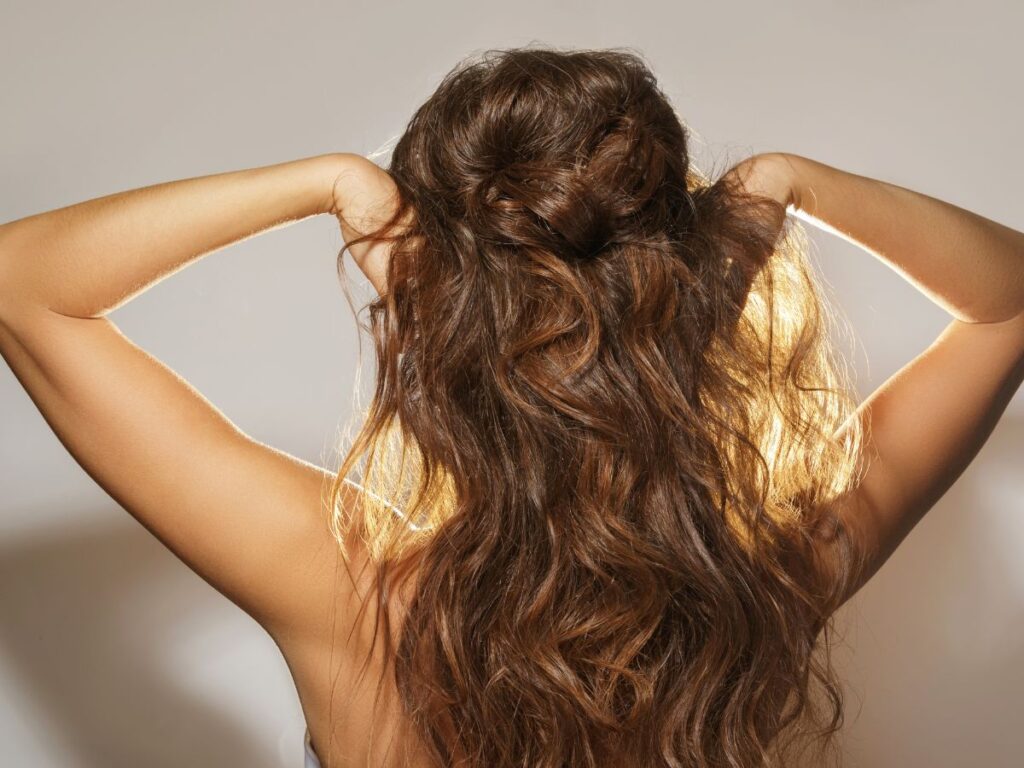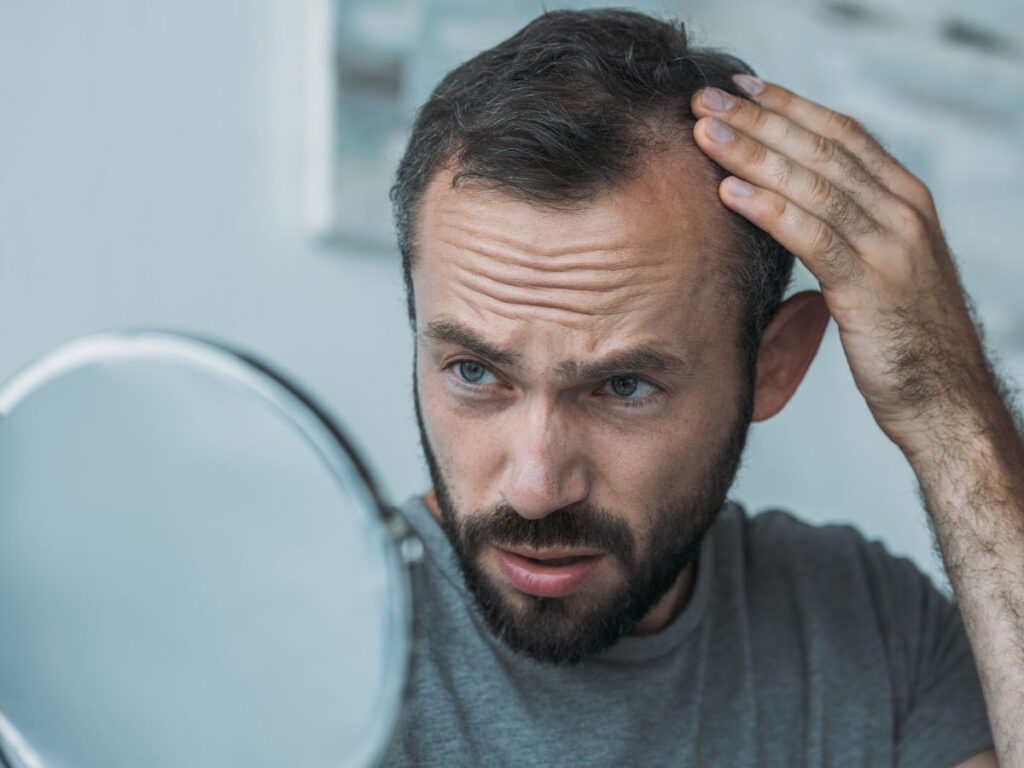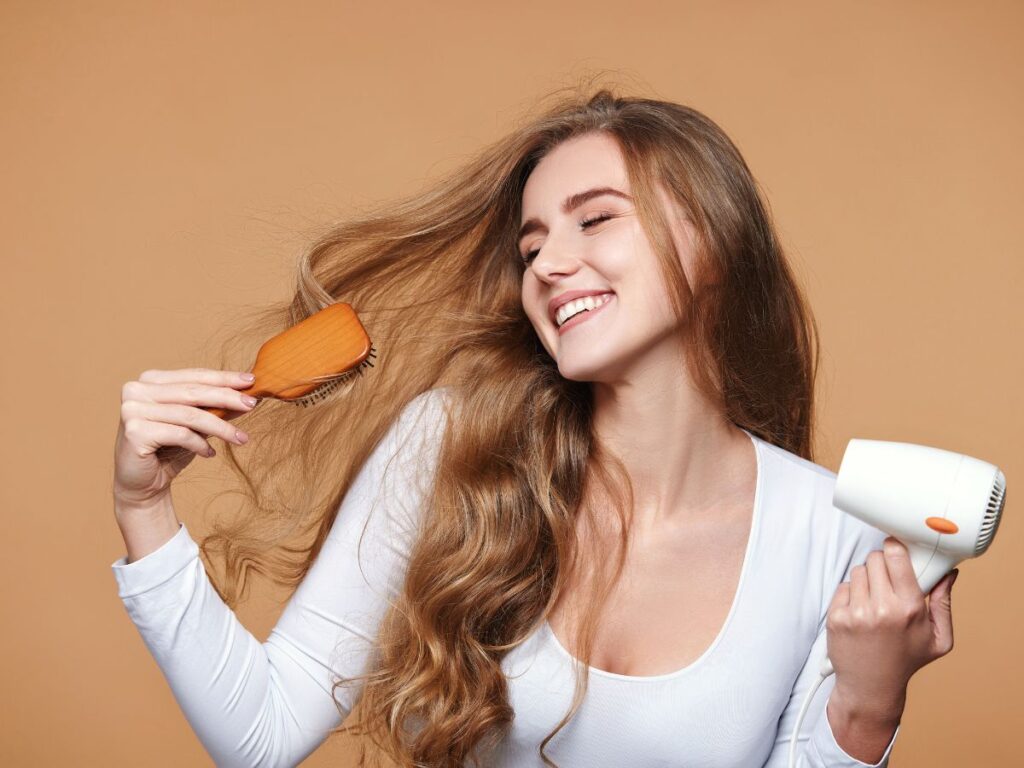Hair Loss Can Be Prevented with The Vitamins
The Role of Vitamins and Minerals in Hair Loss. is very important. It is a very common problem, there is no person who does not suffer from hair loss. We use vitamins to protect our skin and strengthen our bones. Which are useful for us. Similarly, there are some essential vitamins for hair health.
We spend money on many expensive products from the market, but do not consider which vitamins are essential for our hair that prevent our hair fall and improve hair health and growth. A must-read blog to know which vitamins prevent hair fall.
By supplementing the deficiency of these vitamins, we can achieve optimal health. But if your hair is falling fast then you need to visit a good skin doctor so that he can tell you the exact reasons.
The Role of Vitamins and Minerals in Hair Loss?
The health of our hair means a lot to us and how to maintain its health take these vitamins.
Vitamin deficiencies can contribute to hair loss, and several vitamins play a role in maintaining healthy hair. While no single vitamin can guarantee to prevent hair loss, the following vitamins are essential for overall hair health:
Vitamin A:
Helps produce sebum, an oily substance that moisturizes the scalp and keeps hair healthy. However, excessive intake of vitamin A can have adverse effects, so it’s essential to maintain a balance.
Vitamin B Complex:
Biotin (Vitamin B7): Vitamin B7 i.e. biotin is very important for the cells inside our body. Due to its deficiency, our hair falls, nails break apart from itchiness infection on the skin also occurs due to the deficiency of this vitamin. Its level can be low if you are pregnant or breastfeeding. Also, overuse of antibiotics also reduces its level. Biotin is also obtained from foods such as grains, egg yolks and meats.
Niacin (Vitamin B3):
Supports blood circulation to the scalp, aiding in nutrient delivery to hair follicles.
Vitamin B5 (Pantothenic Acid):
Contributes to hair health and may help prevent hair thinning.
Vitamin C:
It is a very important vitamin for our body. With its help we absorb calcium. It not only prevents hair fall but is also an essential vitamin for our skin. We can get this vitamin from citrus fruits. Like kino, lemon and strawberry etc. We should make sure to consume this vitamin for our overall health and hair health.
Vitamin D:
Plays a role in hair follicle cycling and may help reduce hair shedding. Vitamin D deficiency has been associated with alopecia.
This vitamin is essential not only for the strength of our bones but also for our hair. Deficiency of this vitamin invites many problems. We should make up the deficiency of this vitamin for our body and overall health so that we can avoid serious situation. We can also get it with the help of sunlight
Vitamin E:
Acts as an antioxidant, protecting hair follicles from damage. It also helps improve blood circulation to the scalp.
Vitamin K:
Supports healthy hair growth and may help prevent hair loss.
Iron:
Iron is needed to carry oxygen in red blood cells. Its deficiency can lead to anemia, which can lead to fatigue and hair loss. Due to its deficiency, skin color becomes yellow. Due to deficiency of this vitamin, the problem of hair loss occurs.
Women who have long periods may be deficient in this vitamin. You can get iron from green leafy vegetables. Apart from this, anemia is cured with the help of goat meat.
Zinc:
This vitamin plays a key role in making proteins in our body’s other cells and hair. Our body cannot make it, we can get it with the help of supplements. Low zinc levels include hair loss, poor wound healing. If you are pregnant or breastfeeding, you may be deficient in zinc.
Also, if you have kidney disease or severe diarrhea, you may be deficient in this vitamin. We can get zinc from natural sources. Like nuts and meat etc. It is necessary to use it to protect hair fall.
It’s important to note that a well-balanced diet that includes a variety of nutrients is essential for overall health, including the health of your hair. If you suspect that your hair loss is due to a nutritional deficiency, it’s advisable to consult with a healthcare professional or a registered dietitian.
They can help identify potential deficiencies and guide you on appropriate dietary changes or supplements if necessary. Additionally, other factors such as genetics, hormonal imbalances, and medical conditions can contribute to hair loss, so seeking professional advice is crucial for an accurate diagnosis and appropriate treatment.
What Vitamin A Is Good For Hair Loss?
Vitamin A is important for maintaining a healthy scalp and promoting hair growth. However, it’s essential to note that while an adequate amount of vitamin A is crucial, excessive intake can have adverse effects and may contribute to hair loss. Finding the right balance is key. Here’s how vitamin A supports hair health:
Sebum Production:
Vitamin A is essential to produce sebum, an oily substance produced by the sebaceous glands in the scalp. Sebum helps moisturize the scalp and keeps hair strands healthy.
Antioxidant Properties:
As an antioxidant, vitamin A helps protect hair follicles and the scalp from oxidative stress. This can contribute to maintaining a healthy environment for hair growth.
Cell Growth and Differentiation:
Vitamin A is involved in the growth and differentiation of cells, including those in hair follicles. Proper cell turnover is crucial for maintaining healthy hair.
Immune Function:
Vitamin A plays a role in supporting the immune system. A healthy immune system contributes to overall well-being, which can indirectly impact hair health.
Prevention of Dry Hair and Itchy Scalp:
Adequate vitamin A helps prevent a dry scalp and itchiness, creating a more favorable environment for hair growth.
It’s important to obtain vitamin A from a balanced diet that includes a variety of foods. Sources of vitamin A include:
Animal-Based Sources:
- Liver
- Eggs
- Dairy products (milk, cheese)
Plant-Based Sources:
- Sweet potatoes
- Carrots
- Spinach
- Kale
- Broccoli
- Mangoes
While vitamin A is crucial for hair health, excessive intake from supplements can lead to toxicity. It’s generally recommended to obtain nutrients through a well-balanced diet rather than relying on supplements unless advised by a healthcare professional.
If you suspect a vitamin deficiency or have concerns about hair loss, it’s advisable to consult with a healthcare provider or a registered dietitian who can assess your specific needs and provide personalized recommendations.
What is the best thing to prevent hair loss?
Preventing hair loss involves a combination of lifestyle practices, proper hair care, and addressing underlying factors that may contribute to hair thinning. Here are some effective strategies to help prevent hair loss:
Maintain a Balanced Diet:
- Ensure your diet includes a variety of nutrients crucial for hair health, such as vitamins (A, B, C, D, and E), minerals (iron, zinc), and proteins. A well-nourished body supports healthy hair growth.
Stay Hydrated:
- Drink an adequate amount of water daily to keep your body and hair well-hydrated. Dehydration can negatively impact hair health.
Avoid Harsh Hairstyles and Treatments:
- Limit the use of tight hairstyles, such as ponytails and braids, as they can contribute to hair breakage and traction alopecia. Also, minimize the use of heat styling tools and chemical treatments that can damage hair.
Gentle Hair Care:
- Use a mild shampoo and conditioner suitable for your hair type. Avoid excessive rubbing and vigorous towel drying, as this can weaken hair strands.
Manage Stress:
- Chronic stress can contribute to hair loss. Practice stress-reducing activities such as yoga, meditation, deep breathing exercises, or any activity that helps you relax.
Regular Exercise:
- Engage in regular physical activity to improve overall health, blood circulation, and reduce stress. Good circulation to the scalp is beneficial for hair follicles.
Adequate Sleep:
- Ensure you get enough quality sleep. Sleep is crucial for overall health, and lack of sleep can contribute to hair loss.
Avoid Smoking and Excessive Alcohol:
- Both smoking and excessive alcohol consumption have been linked to hair loss. Quitting smoking and moderating alcohol intake can have positive effects on your hair and overall health.
Check Hormone Levels:
- Hormonal imbalances, such as those related to thyroid function or fluctuations in reproductive hormones, can contribute to hair loss. Consult with a healthcare professional if you suspect hormonal issues.
Address Medical Conditions:
- Some medical conditions and medications may contribute to hair loss. Consult with a healthcare provider to address any underlying health issues and explore alternatives if necessary.
Scalp Massage:
- Gentle scalp massages can stimulate blood circulation and promote a healthy scalp. You can use natural oils, like coconut or jojoba oil, during a scalp massage.
Regular Checkups:
- Regularly monitor your hair and scalp for changes. If you notice excessive hair loss or other concerning symptoms, consult with a dermatologist or healthcare provider.
Remember, individual responses to these strategies may vary, and it’s essential to identify the specific factors contributing to your hair loss. If you’re experiencing persistent or severe hair loss, seeking advice from a healthcare professional or a dermatologist is recommended for a proper diagnosis and tailored treatment plan.
Does B12 help with hair loss?
Vitamin B12, also known as cobalamin, is essential for various bodily functions, including the formation of red blood cells, neurological function, and the metabolism of cells. While a deficiency in vitamin B12 can lead to a range of health issues, including anemia and neurological problems, there isn’t robust evidence to suggest that vitamin B12 supplementation directly and significantly prevents or reverses hair loss in individuals with normal B12 levels.
However, if someone has a deficiency in vitamin B12, addressing that deficiency through supplementation may improve overall health, which could indirectly have positive effects on hair health. Vitamin B12 deficiency can lead to fatigue, weakness, and changes in the skin and hair, among other symptoms.
It’s important to note that hair loss can be caused by various factors, including genetics, hormonal changes, nutritional deficiencies, stress, and medical conditions. Therefore, before self-prescribing vitamin supplements, including B12, it’s advisable to consult with a healthcare professional. Excessive intake of certain vitamins, including B12, can lead to side effects, and a healthcare provider can help determine if supplementation is necessary based on individual health status.
If you suspect you have a vitamin B12 deficiency or are experiencing hair loss, a healthcare provider can conduct tests to assess your B12 levels and provide guidance on appropriate supplementation if needed. Additionally, they can help identify and address any underlying causes of hair loss and recommend a comprehensive approach to support overall health.
https://www.mayoclinic.org/diseases-conditions/hair-loss/symptoms-causes/syc-20372926








